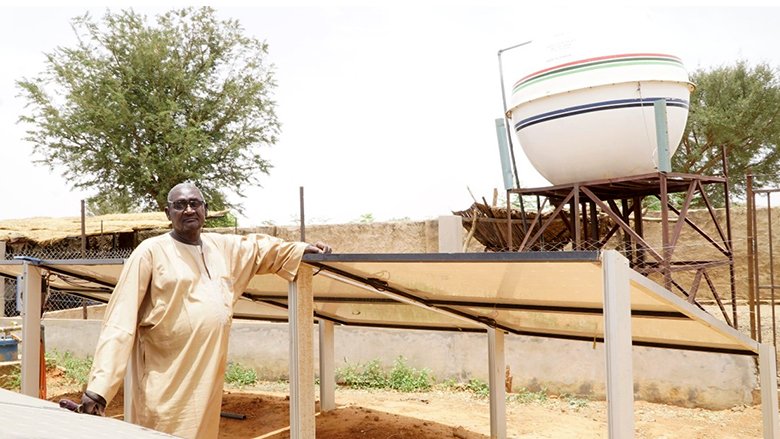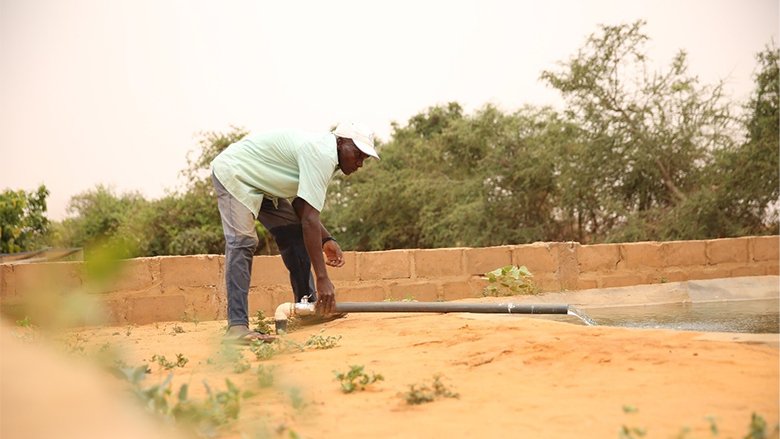Boubacar Issoufou Alzouma manages a large farm in Finaré, Niger. “The land from here to Niamey is green with vegetation, whereas previously it was not cultivated,” explains Alzouma. Solar irrigation made the difference. Alzouma acquired several solar-powered pumps with support from the World Bank-funded Niger Solar Electricity Access Project (NESAP). The pumps and the technical advice he received have enabled him to irrigate large areas of land, diversify crops, and increase yields. It is a game-changer in Niger, where food security is paramount.
Niger is a large, landlocked, and predominantly arid country. Like four of its neighbors in West Africa, Burkina Faso, Chad, Libya, and Nigeria, it is affected by medium-intensity conflict. More than 80 % of the country’s 25 million people lack access to electricity, the highest proportion in Sub-Saharan Africa. Meanwhile, energy demand is rising as population growth outpaces electrification efforts.
Agriculture accounts for nearly 40 % of Niger’s GDP and employs 81 % of its population. Although agricultural products are Niger’s second-largest export, the country faces considerable food insecurity caused by droughts, violence, floods, and poor resilience against climate change. One obvious solution is to electrify agricultural production. Solar-powered irrigation pumps and other appliances have demonstrated their power to transform Niger by increasing crop yields and production.
“Previously, I irrigated only a tiny plot using diesel water pumps,” says Alzouma. “With solar irrigation, we now grow fruit trees, onions, tomatoes, and moringa. We even grow rice!”
Observing the high yields he was getting, Alzouma’s neighbors in Finaré followed his example.
Idé Sanda is a farmer in Winditane near Balleyara, about 100 kms northeast of Niamey. Sanda bought two solar pumps in 2018 through the NESAP program. He had previously used diesel motor pumps for irrigation, but “production was low compared with the investment.” The ease and reliability of solar pumps prompted him to expand his farms from two to three hectares. He now farms several crop rotations.
With $50 million in funding from the International Development Association, NESAP works by extending credit to private companies that sell productive-use appliances such as solar-powered pumps. Four solar pump companies accounting for half of all pump sales in Niger have tapped into the credit line, bringing 800 solar pumps to Niger’s farms since 2017.
NESAP has loaned more than $1.5 million to solar system importers, wholesalers, retailers, installers, and solar electricity service providers.
At the outset, the project mounted a consumer education campaign featuring media spots and roadshows to inform and engage consumers, prospective partners, and financing institutions. Business models were customized to attract private sector investment.


